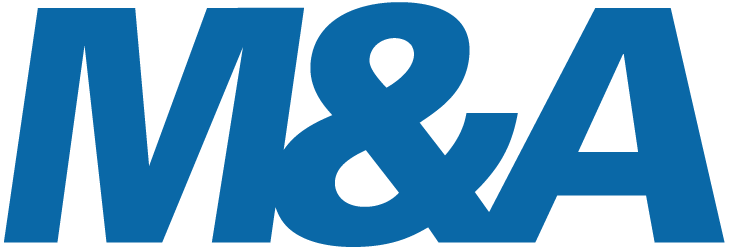Private Equity as an engine of growth in times of crisis

Door Nathalie van Woerkom
Already we hear that PE managers are working closely with their portfolio companies to identify and implement measures to ride out the storm. Banks in the Netherlands announced a six month reprieve for small business loan repayment terms and are apparently open to considering this for larger credit lines as well. The challenge will be to take this initial positive step and transform it into collective action from both Lenders and PE houses. The first step being to stabilize their current investment companies and then utilize the record levels of funds raised by PE to drive new investment and growth.
Creative solutions
Pricing levels had kept many funds from executing transactions. The economic downturn may lead to an adjustment in price expectations and present a wider range of attractively priced targets. We expect to see in the future once the Covid dust has settled, increased activity for funds that focus on distressed transactions and possibly a pick up in public to private transactions as well.
Although work is continuing on many transactions with virtual meetings, there is no doubt that most decision makers are waiting to see what the next few weeks and months will hold.
As the stock markets continue to display volatility, institutional and other investors are still looking to private investment to provide a more stable and predictable return. The Institute of Chartered Accountants in England and Wales even argue that the traditional private equity fund structure operates to limit systemic risk by providing large institutional investors with long term illiquid, unleveraged investments.
On a more immediate level, the Chinese government announced measures to expedite the registration of funds that will invest in epidemic prevention and related medical enterprises. The role that PE can play in addressing societal challenges is increasingly at the top of the agenda of both PE managers and policy makers. In the Post-Covid world can PE can build on the positive environmental consequences of the shut down by investing in new products and new ways of doing business?
Driving economic growth
Researchers for the European Bank for Reconstruction and Development (EBRD) recently announced the results of their research into the impact of private equity investment in developing countries. The research concluded that PE investment in medium sized enterprises helped these companies develop new products and invest in new markets. These investments had direct positive impact on productivity and job creation. PE according to the researchers had a far greater impact than the provision of micro-credit.
This positive view of Private Equity contrasts sharply with the suspicion with which the media and often government view PE. Three years ago the Dutch parliament went so far as to request independent research into the effects of private equity investment on the stakeholders of PE held companies.
PE has often been accused of having a short term view, stripping out cash and assets and overburdening business with excessive debt. PE is seen as leading healthy businesses into bankruptcy with no regard to the consequences for employees and suppliers. Governments have also expressed concern about tax structuring leading to a fall in tax revenue, once companies are acquired by PE investors.
The 2017 University of Amsterdam research report presented to the Dutch parliament reached a very different conclusion. The researchers argued that leverage increased financial discipline and created an urgency towards growth. They saw reputational concerns protecting against excessive leverage and pointed out that European studies showed no greater number of bankruptcies in PE portfolio companies than other companies. Excessive dividend distribution or asset stripping and a short term management focus on cash flow, all appear to be incidental and there was no structural indication of this effect. Although PE held companies often underwent restructurings which led to some short term job loss this was also followed by a steeper growth curve with job gains. The overall effect was of a small job loss. The researchers did point out potential conflicts of interest between GP and portfolio companies and transaction incentives for management and existing shareholder interests.
The Dutch Minister of Finance in 2018 proposed a number of measures to address the risks identified in the research. Firstly, he emphasized that the Supervisory Board should play an active role during the acquisition process and that conflict of interest rules in decision making of board members should be strictly applied. He proposed that the Impact of regulation and existing legal protections should be closely monitored –such as AIFMD, director liability and corporate governance law. He requested further investigation into whether shareholder loans should be subordinated in insolvencies. He pointed out that changes to the tax regime limiting the deduction of interest would already address the concerns of the fiscus with respect to lost revenue. Finally the Minister called on the Dutch industry association for PE funds – the NVP to increase transparency and reporting on the impact of PE in the Netherlands.
Where do we stand now in 2020
On the regulatory front, there is no doubt that the implementation of AIFMD has increased the professionalism and transparency of the PE industry.
Anti-tax abuse initiatives in Europe have impacted the tax structuring of European funds and hopefully countered excessive leverage. We can expect European tax authorities to continue to look critically at fund structuring
An open question remains as to whether legislation is needed to prevent conflicts of interest in related party transactions for non-listed entities. This was introduced for listed companies following the EU Directive on shareholder rights. The implementation of a new Act on Management and Supervision of Legal Entities will extend the conflict of interest provisions and the important role of the Supervisory Board in conflict of interest situations to other Dutch legal entities.
For the PE industry, best practice guidelines such as reflected in the Handbook of Professional Standards emphasize that directors should not act in the interests of one particular shareholder but in the interests of the company as a whole. The guidelines recommend that GP appointed directors should be fully transparent as to any potential conflicts of interest and in conflict of interest situations recuse themselves from being involved in the GP’s decision regarding a portfolio company and even withdraw as director from a portfolio company if necessary. The best practice guide recognizes that “poorly structured incentivization packages can adversely affect governance”. The bottom line is that PE funds themselves must promote on a voluntary basis a robust and transparent approach to conflict of interest issues if they are to avoid public backlash and legislative interventions.
The call for a review of the subordination of shareholder loans in bankruptcy has not yielded any change, correctly so in our opinion. The lack of subordination arises from fundamental principles regarding the rights of security holders under Dutch law. The legal certainty offered to lenders under Dutch law is an important cornerstone of investment in the Netherlands.
The call for additional data and transparency remains an important challenge. Particularly in times of crisis, private equity can be seen in a negative light. All the players in the PE industry should be doing more to educate the public on the profoundly positive impact that private investment has on the Dutch economy.
Looking ahead for 2020
Beyond the immediate economic challenges of the first few months of 2020, Environmental Social and Governance (ESG) goals are expected to grow in importance in 2020. Many PE funds are seeking to distinguish themselves with a responsible investment approach but also to better manage risk arising from climate change and regulatory compliance . PE funds face growing interest and pressure from investors to adopt a more pro-active role towards ESG issues. ESG issues will be prominent in each step of the investment cycle. From identifying targets and conducting due diligence, through to encouraging the adoption of responsible business practices which are monitored and reported. Finally depending on the chosen exit strategy, ESG risk and opportunity will need to be identified again early on in the exit process..
Brexit poses a new challenge to the European regulatory environment. UK Fund managers who thought that Brexit would free them from EU compliance cost are realizing that their large EU investor base will continue to require compliance with EU standards. On the other hand EU members might seek to restrict UK access to the European market in order to benefit their domestic funds. 1.96 trillion euros of European investor assets are being managed on a delegated basis from the UK, which will no longer be subject to European oversight. Delegation and passporting will all face scrutiny in 2020. The EU may now finally reconsider the passporting plans for the 12 countries including Switzerland, Guernsey and the US who were put on hold as Brexit unfolded.
Interestingly 2020 will begin in the Netherlands with an enquiry granted at the end of 2019 in the Enterprise Chamber of Amsterdam into the potential mismanagement of the Estro Group dating back to a period almost 10 years ago. The issues of debt push down, transaction incentives granted to management, the lack of a governance structure to provide checks and balances will all be the subject of the enquiry. Although the PE industry has matured and transformed in the pasts 10 years, it is these incidents which will continue to influence public opinion on Private Equity. It is up to all of the stakeholders in the PE industry to highlight the role of PE as engine for sustainable economic growth particularly in times of crisis.
Nathalie van Woerkom is partner at AKD Benelux lawyers.









